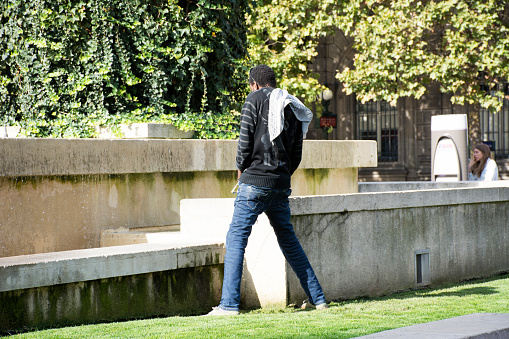
3 Medical Conditions That Can Cause Frequent Urination & What You Should Do About It
Published on August 18, 2022 at 7:34 PM by Flora Mitumba
The constant need to urinate can be annoying, especially when little urine is actually produced. However, a lot of people go through it at different times in their lives.
Sometimes it’s only a minor irritation, other times it means the person has a major underlying problem.
This problem is frequently brought on by a urinary tract infection (UTI), pregnancy, an enlarged prostate, or even an overactive bladder.
Travel, especially long road journeys, can be challenging if you frequently need to leave meetings or important operations to use the restroom.
The following are three medical disorders that may cause frequent urination and what you may do to lessen it, according Healthline.
1. Diabetes.
Women who have diabetes of either type may urinate a lot. Frequent, strong urination is the main sign of diabetes mellitus.
This symptom occurs when the body is unable to control blood sugar levels; an excess of sugar causes more fluid to flow past the kidneys.
This symptom typically disappears once your blood sugar is under control. Along with frequent urination, individuals with diabetes frequently acquire urinary tract infections.
If diabetic neuropathy worsens and affects the body’s nerves, it may also have an impact on the kidneys, which could lead to difficulty urinating.
2. Infections of the bladder, kidneys, and urethra.
One of the most common causes of frequent urination is urinary tract infections, or UTIs. Over 50% of women experience at least one UTI over their lifetime, with many of these infections beginning in their early 20s. Germs entering the urinary tract during sexual activity or improper toilet cleaning frequently cause UTIs.
However, other people besides immune system-affected women, pregnant women, those who retain their bladders for extended periods of time, and others can also experience the persistent scorching pee associated with a UTI.
One kind of UTI is a kidney infection that begins in the bladder or urethra and progresses to the kidneys. Consult your doctor if your symptoms do not lessen when taking antibiotics for a UTI.
What to do in response.
Let your doctor know if you urinate a lot. Depending on the cause, your doctor can advise you on the best course of treatment for frequent urination; however, if you have an infection, you will likely need to take a course of antibiotics.
Antibiotics can effectively treat infections in the majority of situations. Additional bladder-calming medications are also available, which can help to decrease urge incontinence episodes and relieve symptoms of an overactive bladder.
Rarely, severe urge incontinence may be treated with bladder injections. Surgery and nerve stimulation are further alternatives.
You may consider making a few lifestyle changes if all other possible causes of your overactive bladder have been ruled out. During the day, cutting back on caffeine can assist, while cutting back on fluids at night can help with frequent urination.
Bladder training can be quite helpful for many people if the problem is largely due to habit and partially due to regulating an overactive bladder. It assists the patient in reading signals from the bladder and brain and treating the illness by retraining behavioral habits to take into account these very real symptoms.


